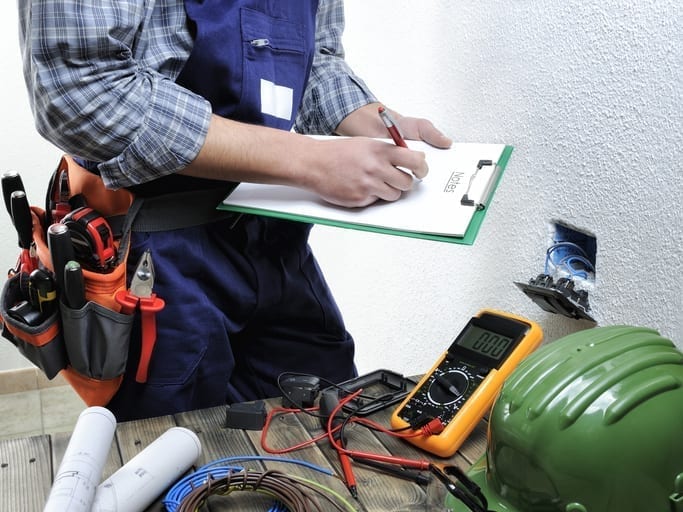
When purchasing or renting a new home many homeowners assess the function of the household utility systems like water and electricity–usually with an emphasis on economy and efficiency. While it is important to assess how efficient your home’s electrical usage is, it is even more important to ensure that the electrical wiring throughout the home has been installed and maintained properly. Faulty electrical wiring or systems can jeopardize the entire household and cause damaging and even fatal accidents. Many homeowners are blindsided when these incidents occur, having been unaware of the faulty wiring installed by prior contractors. This post will describe several “red flags” to look out for when assessing the safety and efficacy of your home’s electrical system. Get ahead of your faulty electrical wiring.
Frequent Outages from Breaker Trips
The breakers in your home’s electrical grid serve to shut down the entire system in the event that too much power is being pushed through. This is generally a protective mechanism to prevent the system from being overwhelmed and shorting out and it is easily solved by flipping the switches in your home’s power box to return electricity to the system. However, if this is happening frequently it could be indicative of a larger issue, like poorly insulated wiring or a poorly adjusted potentiometer on the breaker itself.
Buzzing, Humming, Flickering Lights
If you can hear audible crackling, humming or buzzing when you turn on any of the installed lights in your home, this could be a sign of outdated or decaying wiring. The buzzing or flickering may become more noticeable while other appliances in the household are being used (for instance, when the kitchen light goes on the fritz every time you use the microwave). Outdated wiring required immediate repair in order to prevent circuit damage, as well as home or personal damage from an electrical fire.
Signs of Sparking, Heat or Other Energy Discharge
If wiring is poorly insulated, or if parts of your electrical grid are being subject to overload or corrosion, there is a good chance you can find evidence of it in the form of blackened marks, melted/frayed wiring, and the smell of burning materials. If you can’t identify these signs of damage in your immediately accessible areas (by the water heater, inside the lighting implements, or by outlets) but you have suspicions of faulty electrical wiring, then you may wish to employ a professional. Regular inspection of the internal electrical components of your house ensures a thorough assessment.
Faulty Electrical Wiring
Ultimately, it is always best to have a certified electrician conduct an inspection of your home’s wiring and the electrical grid in order to be absolutely certain that your system doesn’t pose any Faulty electrical wiring. Even so, forming a general awareness of the proper function, as well as signs of malfunction, will empower you as a homeowner and keep you involved in the process of maintaining a safe and energy efficient space for you and your family.
